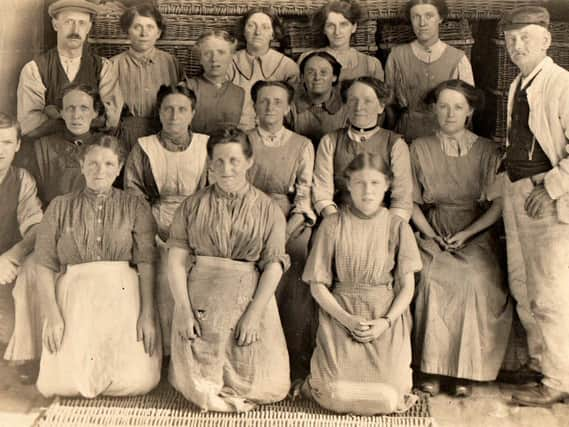Arson charges dropped against Preston watchman after cotton mill fires


On that last Sunday of July 1851 a timely discovery was made of a fire at Moon’s Mill in Higher Walton when two pieces of timber were discovered alight in an upper room.
Fortunately, no serious damage occurred but the watchman, Richard Thompson was discharged by his employers.
Advertisement
Hide AdAdvertisement
Hide AdEarly on the following Sunday morning a fire of a more serious nature occurred at the mill where extensive development was being undertaken by the owners Messrs. Miles Rodgett & Sons. The fire was spotted in a warehouse building just after midnight by a passer-by who saw flames flickering and alerted the mill owner. Willing hands soon set to work to quell the blaze and the alarm was eventually raised for the Preston Fire Brigade to call.
It took some five hours to suppress the flames, by which time the roof timbers had been destroyed and the top floor was a burnt-out shell. The damage was estimated at over £500 and it was believed it had been the work of an incendiary.
Suspicion fell upon Thompson who was apprehended and two weeks later he appeared before the magistrates at Walton-le-Dale sessions on two counts of arson. John Rodgett, one of the partners, told the hearing that when the first fire took place Thompson had neglected to inform the owners of its occurrence and that when he went to the mill to check it seemed that fire had been deliberately set. Adding that on the Saturday evening following, the prisoner’s wife had called to ask him to take her husband on again, but he declined.
Thompson claimed that on the first occasion as far as he knew John Mercer another employee had been the last in the room where the fire occurred and he knew Mercer was in the habit of smoking. Another witness John Cornwell stated that when Thompson was alerted to the blaze he had immediately fetched water and done all in his power to dampen it down.
Advertisement
Hide AdAdvertisement
Hide AdThompson then testified as follows: “As to the first charge I cannot deny that I was on the premises. As to the second charge, I came to Preston to my sister’s, with Rodgett’s blacksmith and two others, at four o’clock on Saturday and was there until 9 o’clock.”
There had been no sighting of the accused at the mill on that day and Thompson suggested that the fire might have been started by a man named William Brown whom he had quarrelled with recently and had sworn revenge upon him.
After much deliberation the magistrates were divided in their opinion with one of them: “It is a very mysterious case, and I wonder if there is sufficient evidence.”
Nonetheless, they committed Thompson to stand trial at the Liverpool Assizes and he was allowed bail until that date. At the Liverpool Assizes of December 1851 the Grand Jury after careful considerations cut the bill due to lack of evidence and the case was dismissed. The magistrates were duly criticised for forwarding the case to the Assizes and incurring a cost of over £20 to the parish.
Advertisement
Hide AdAdvertisement
Hide AdThe original Moon’s Mill can be traced back to circa 1793 and when the extensions were completed by Miles Rodgett the cotton spinning capacity was greatly increased. Thirty years on the business became part of the G & R. Dewhurst company which also owned Cuerden Mill. These days it is the Higher Walton Mill trading estate with industrial units supplying timber, tyres, transport and much more where cotton spinning once ruled.